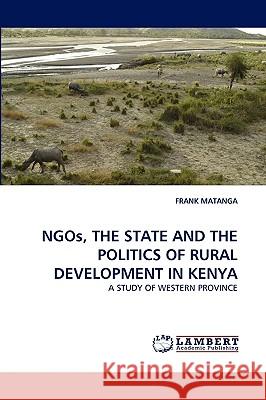Ngos, the State and the Politics of Rural Development in Kenya » książka
Ngos, the State and the Politics of Rural Development in Kenya
ISBN-13: 9783838374130 / Angielski / Miękka / 2010 / 320 str.
In the recent past, matters of development have taken center-stage in the development literature of developing states. In particular, there has tended to be a development paradigm shift from state-led development to non-governmental (NGO)based development. Boosted by neo-liberal thinking, the NGO sector, widely viewed as part of the market sector, is argued to be more efficient and effective in managing development. It is against the backdrop of this assumption that this study empirically examines the role of NGOs in the process of development in Kenya, with particular reference to Western Kenya. At the same time, the book critically examines the role of the state in development in terms of its possible utility. At the end of the day, our analysis sheds light on how NGOs and the state can work together to support the process of development, especially in the developing world.
In the recent past, matters of development have taken center-stage in the development literature of developing states. In particular, there has tended to be a development paradigm shift from state-led development to non-governmental (NGO)based development. Boosted by neo-liberal thinking, the NGO sector, widely viewed as part of the market sector, is argued to be more efficient and effective in managing development. It is against the backdrop of this assumption that this study empirically examines the role of NGOs in the process of development in Kenya, with particular reference to Western Kenya. At the same time, the book critically examines the role of the state in development in terms of its possible utility. At the end of the day, our analysis sheds light on how NGOs and the state can work together to support the process of development, especially in the developing world.











